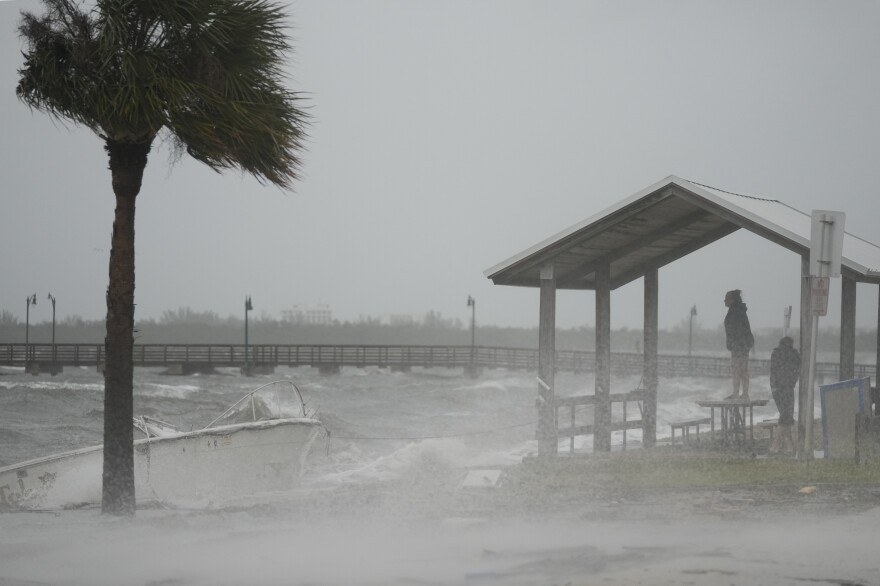Updated November 10, 2022 at 3:38 AM ET
Nicole was downgraded to a tropical storm Thursday morning, shortly after making landfall in Florida, according to the National Hurricane Center.
As of 4 a.m. ET Thursday, Nicole was downgraded to tropical storm status, but it still packed maximum sustained winds of 70 miles per hour, the hurricane center said. It was moving west-northwest near 14 mph. Nicole made landfall just south of Vero Beach, hurricane center officials said.
The east and west coasts of Florida, as well as the coasts of Georgia and South Carolina, are expected to have tropical storm conditions Thursday, causing storm surges and "large and damaging waves along the Atlantic coast," the NHC said.
"Do not focus on the exact track of Nicole since it is a large storm with hazards extending well to the north of the center, outside of the forecast zone," the NHC said.
The Appalachian Mountains could also experience some flooding Friday, which could extend all the way up to New York and Pennsylvania.
Hurricane season in the Atlantic is typically a six-month period from June 1 to Nov. 30, and peaks between mid-August and late-October, according to the Florida Climate Center.
Warnings were issued for many parts of Florida, including the southwestern Gulf coastline that was damaged by Hurricane Ian, a Category 4 storm Sept. 28. Many state residents are still recovering from the homes and crops destroyed destroyed by Ian.
Copyright 2022 NPR. To see more, visit https://www.npr.org.




